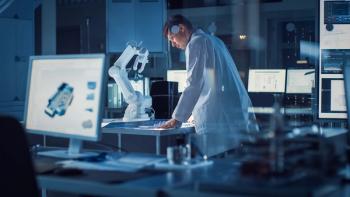
Particle engineering can be a resourceful tool to advance drug candidates by offering drug delivery innovation.

Particle engineering can be a resourceful tool to advance drug candidates by offering drug delivery innovation.

Deeper biological understanding and technology innovations have improved the fate of ADC development.

Through the integration of human expertise, artificial intelligence, and automation robotics, bio/pharma companies can more efficiently target drug discovery efforts with bigger payoff.

Generate Biomedicines published a preprint describing technology that can generate novel proteins towards desired functional or other properties.

PictorLabs, a digital pathology company developing an AI-powered virtual staining platform, formally announced its launch at the start of December.

The partnership will see the pharma giants partner with researchers from A*STAR and various Singapore universities.

In addition, personnel, equipment, and facilities from the acquired companies will expand Reaction Biology’s presence in Germany while enabling its global customers to leverage Bioassay’s expansive portfolio of regulated clinical and commercial services.

Results from Eisai and Biogen’s Alzheimer's treatment, lecanemab, indicated significantly slowed cognitive decline in patients relative to placebo.

Merck will use BigHat’s AI/machine learning-enabled platform to design candidates for up to three drug discovery programs.

The Pioneer Antibody Discovery Platform is a new antibody discovery service specifically designed to develop best-in-class biologic candidates.

Rousselot Biomedical will supply Gelomics with its gelatin methacryloyl, a photo cross-linkable extracellular matrix, for use in Gelomics’ LunaGel 3D Tissue Culture System.

Biotech startup, Cradle, has raised $5.4 million in seed funding with an AI-enabled design platform that allows for the synthetic building of cell factories to produce proteins.